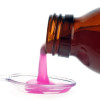Refluks laringofaring dan gangguan refluks gastroesofageal, dua jenis refluks yang umumnya terjadi secara berulang, seringkali berkomorbiditas dengan gangguan psikologis dan saling memengaruhi. Baik gejala refluks laringofaring (laryngopharyngeal reflux atau LPR) dan gangguan refluks gastroesofageal (gastroesophageal reflux disease atau GERD), sama-sama memengaruhi kondisi kesehatan fisik, menurunkan kualitas hidup serta memengaruhi kondisi psikologis seseorang.[1-7]
Prevalensi global dari LPR sendiri mencapai 34.4% dan untuk GERD mencapai 2.5% hingga 39.2%. Tidak jarang keduanya terjadi bersamaan, dilaporkan sekitar 47,9% hingga 60% pasien GERD mengalami LPR dan 71% pasien LPR mengalami GERD.[1,2,8]
Hubungan Antara Faktor Psikologis dengan Refluks Berulang
Hubungan langsung antara faktor psikologis dengan refluks berulang belum sepenuhnya diketahui. Penelitian pada hewan coba menunjukkan bahwa pada kondisi stres, terjadi perlukaan pada esophageal epithelial tight junction yang menyebabkan penurunan fungsi barier mukosa esofagus. Hal ini membuktikan adanya interaksi otak dengan sistem pencernaan (gut-brain interaction).[1-3,7-9]
Interaksi ini secara langsung berdampak pada gangguan motilitas usus, hipersensitivitas visceral, perubahan mukosa, fungsi imun, keseimbangan flora normal usus, dan proses sistem saraf pusat (SSP). Sehingga, neuromodulator seperti antidepresan, antipsikotik dan obat dengan target SSP, sering dipergunakan untuk mengatasi gejala dan gangguan gastrointestinal fungsional (FGID). [1-3,7,9,10]
Kondisi GERD dikatakan berhubungan dengan respons terhadap stimulus intraesofageal. Pada pasien gejala GERD yang berkomorbiditas dengan gangguan psikologis, diduga terdapat gangguan SSP yang menyebabkan terjadinya abnormalitas stimulus intraesofageal.[8,9]
Hipotesis tersebut berupa terjadinya penurunan ambang sensorik dan peningkatan persepsi nyeri pada pasien dengan stres psikologis dan gangguan psikologis sehingga terjadi peningkatan hipersensitivitas esofagus. Selain itu, gangguan di SSP pada pasien depresi, ansietas, atau gangguan mental mendorong terjadinya relaksasi otot sfingter esofagus bagian bawah dan bagian atas, sehingga meningkatkan risiko terjadinya refluks.[1,7,9]
Teori tersebut didukung oleh data penelitian di tahun 2002 hingga 2015 yang menunjukkan bahwa gejala ansietas dan depresi berhubungan peningkatan risiko GERD, demikian pula sebaliknya. Gejala ansietas berkaitan dengan peningkatan risiko refluks sebanyak 3,2 kali dibandingkan kelompok normal, sementara gejala depresi berkaitan dengan peningkatan risiko refluks sebanyak 1,7 kali, dan 2,8 kali pada kelompok dengan gejala campuran ansietas-depresi.[1,8]
Sementara, hubungan GERD dan LPR terhadap gangguan psikologis dilaporkan pada penelitian Wong et al. di tahun 2019. Hasil penelitian tersebut menunjukkan bahwa kelompok pasien GERD dengan gejala LPR melaporkan gejala depresi dan gangguan tidur yang lebih tinggi secara bermakna dibandingkan kelompok tanpa gejala LPR. Sementara itu, gejala ansietas sama tingginya di kedua kelompok.[2]
Secara spesifik, penelitian Wong et al. juga mengukur dominasi gejala refluks yang berhubungan dengan gangguan tidur, gejala depresi dan ansietas. Gangguan tidur lebih dominan terjadi pada mereka yang mengalami gejala batuk setelah makan atau setelah berbaring, batuk yang terus-menerus, rasa terbakar di dada, ataupun terdapat asam lambung yang naik. Sensasi adanya yang menyangkut di tenggorokan, kesulitan bernapas, atau episode tersedak, serta gejala batuk setelah makan atau setelah berbaring, berhubungan kuat dengan terjadinya gejala depresi.[2]
Data penelitian lain juga menyimpulkan bahwa gejala rasa terbakar di dada merupakan gejala utama yang berhubungan erat dengan peningkatan skor gejala depresi pada pasien GERD. Sementara itu, gejala ansietas lebih dominan pada gejala-gejala batuk setelah makan atau setelah berbaring, mukus tenggorokan berlebih atau postnasal drip, dan sensasi adanya yang menyangkut di tenggorokan.[2,7,8]
Pengaruh Psikoterapi Terhadap Gejala Refluks Berulang
Stres, resiliensi, keterampilan beradaptasi, ciri kepribadian, ataupun komorbiditas gangguan psikiatri dapat memengaruhi proses psikofisiologis dan perilaku terhadap kondisi klinis refluks berulang. Beberapa penyebab refluks gagal pengobatan (terutama dengan proton pump inhibitor atau PPI) antara lain kepatuhan berobat yang buruk, refluks asam lemah, refluks kandung empedu, penundaan pengosongan lambung, hipersensitivitas viseral, dan stres emosional.[8,9,11]
Sekurangnya 25–40% pasien GERD tidak patuh pada pengobatan, dengan alasan ketidakpatuhan tersering berupa menolak segala penggunaan obat, kurang diedukasi mengenai GERD, gejala yang ringan, dan kepribadian pasien, terutama yang berkaitan dengan perilaku mencari pengobatan.[8]
Secara umum, kunci pengobatan GERD dan LPR adalah untuk mencapai tahap bebas penyakit, peningkatan kualitas hidup, penyembuhan esofagitis, dan mencegah komplikasi dari penyakit. Intervensi psikologis dapat berperan dalam meningkatkan kesejahteraan umum pasien, kualitas hidup, perbaikan luaran terapi obat atau operasi dari pasien FGID. Modalitas psikologis yang biasanya dilakukan pada kasus FGID berupa hipnoterapi, teknik relaksasi, biofeedback, dan cognitive behavioral therapy (CBT).[7-11]
Peran Hipnoterapi dalam Perbaikan Gejala Refluks Berulang
Hipnoterapi sering digunakan untuk mengatasi masalah emosional, khususnya bagi penderita refluks berulang. Walaupun bukan merupakan terapi tunggal, penambahan hipnoterapi dapat berperan terhadap perbaikan gejala refluks lewat dua mekanisme utama.
Mekanisme perbaikan faktor fisik berupa peran hipnoterapi terhadap penurunan sensitivitas nyeri visceral, modulasi sekresi asam lambung, dan motilitas saluran cerna (khususnya mempercepat pengosongan lambung dan transit orocecal). Sementara itu, mekanisme perbaikan faktor psikologis berupa perbaikan kemampuan adaptasi seseorang, resiliensi, keterampilan meregulasi diri yang lebih baik, dan penurunan ketergantungan terhadap fasilitas kesehatan.[3,12]
Peran Cognitive Behavioral Therapy (CBT) dalam Perbaikan Gejala Refluks Berulang
Terdapat dua penelitian di tahun 2018 yang mengamati peran CBT terhadap pasien dengan GERD dengan gejala utama refluks. Subyek dikelompokkan ke dalam 3 kelompok; kelompok yang hanya menerima obat (omeprazole dan domperidone), CBT saja, dan obat dengan CBT. Hasilnya adalah seluruh kelompok yang menerima CBT mengalami penurunan skor depresi, ansietas, perbaikkan kualitas hidup, serta penurunan waktu pemaparan asam di esofagus dibandingkan kelompok yang tidak menerima CBT.[7,9,13]
Secara umum, CBT yang dilakukan memperbaiki persepsi pasien tentang gejala yang dialami, terutama mengenai ketakutan akan penyakit, peningkatan emosi negatif akibat penyakit yang dialami. CBT juga membantu pasien menyiapkan langkah untuk mengenali warning signs, termasuk mengenali kemungkinan etiologi, terapi dan faktor psikologis yang memengaruhi refluks. Selain itu, CBT membantu pasien menjalankan tindakan preventif, termasuk meningkatkan kedisiplinan diri, kebiasaan makan yang baik, dan modifikasi gaya hidup.[9,13]
Terapi mindfulness sebagai bagian dari CBT juga diamati dapat memberikan perbaikan gejala refluks berulang. Mindfulness berfungsi untuk menurunkan reaktivasi terhadap pikiran, emosi, dan sensasi fisik termasuk sensasi nyeri, sehingga dapat menurunkan sensitivitas visceral. Penurunan sensitivitas visceral ini berkaitan dengan penurunan gejala GERD dan peningkatan kualitas hidup pasien.[8,11]
Psikoedukasi sebagai Terapi Adjuvant Gejala Refluks Berulang
Psikoedukasi meningkatkan pengetahuan pasien mengenai penyakit yang dialami, termasuk pengertian akan penyakit tersebut, kemungkinan etiologi, dan jenis pengobatan rutin maupun adjuvant yang diperlukan. Psikoedukasi juga berperan dalam proses modifikasi gaya hidup, perubahan pola diet, dan mendeteksi kekambuhan gejala (warning symptoms).[8,10,11]
Modifikasi gaya hidup yang utama pada kondisi refluks berulang berupa pembelajaran metode untuk menurunkan volume dan tekanan pada perut, misalnya:
- Penurunan berat badan ke batas ideal berat badan
- Tidak menggunakan pakaian yang ketat di sekitar abdomen
- Terkait makan berupa memperkecil porsi makanan terutama saat makan malam, memberi jarak sekurangnya 3 jam antara makan malam dengan waktu tidur atau berbaring
- Menggunakan penopang untuk meningkatkan posisi kepala saat berbaring serta berbaring menghadap sisi kiri jika pasien terbangun di tengah malam akibat munculnya gejala[10,11]
Kesimpulan
Interaksi antara sistem pencernaan dengan otak memiliki dampak pada gangguan psikologis dengan gangguan fisik yang saling terkait. Walaupun belum sepenuhnya diketahui, diduga bahwa gangguan psikologis berhubungan dengan penurunan ambang sensorik, peningkatan sensitivitas esofagus, dan relaksasi abnormal otot sfingter esofagus sehingga meningkatkan risiko terjadinya refluks berulang. Gangguan depresi, ansietas dan gangguan tidur dikatakan meningkatkan risiko terjadinya GERD dan LPR berulang, demikian sebaliknya.
Psikoterapi, sebagai salah satu modalitas terapi gangguan psikologis, dilaporkan memberikan dampak perbaikan gejala refluks berulang. Dampak perbaikan yang diamati terutama berupa perbaikan pengetahuan mengenai penyakit dan terapinya, penurunan emosi negatif yang berhubungan dengan penyakit, dan penurunan skor gangguan psikologis. Selain itu, terdapat perbaikan terhadap kualitas hidup, perbaikan respons terhadap gejala hipersensitivitas esofagus, perbaikan pola adaptasi dan regulasi stres, serta perbaikan dalam menjalankan langkah preventif.















